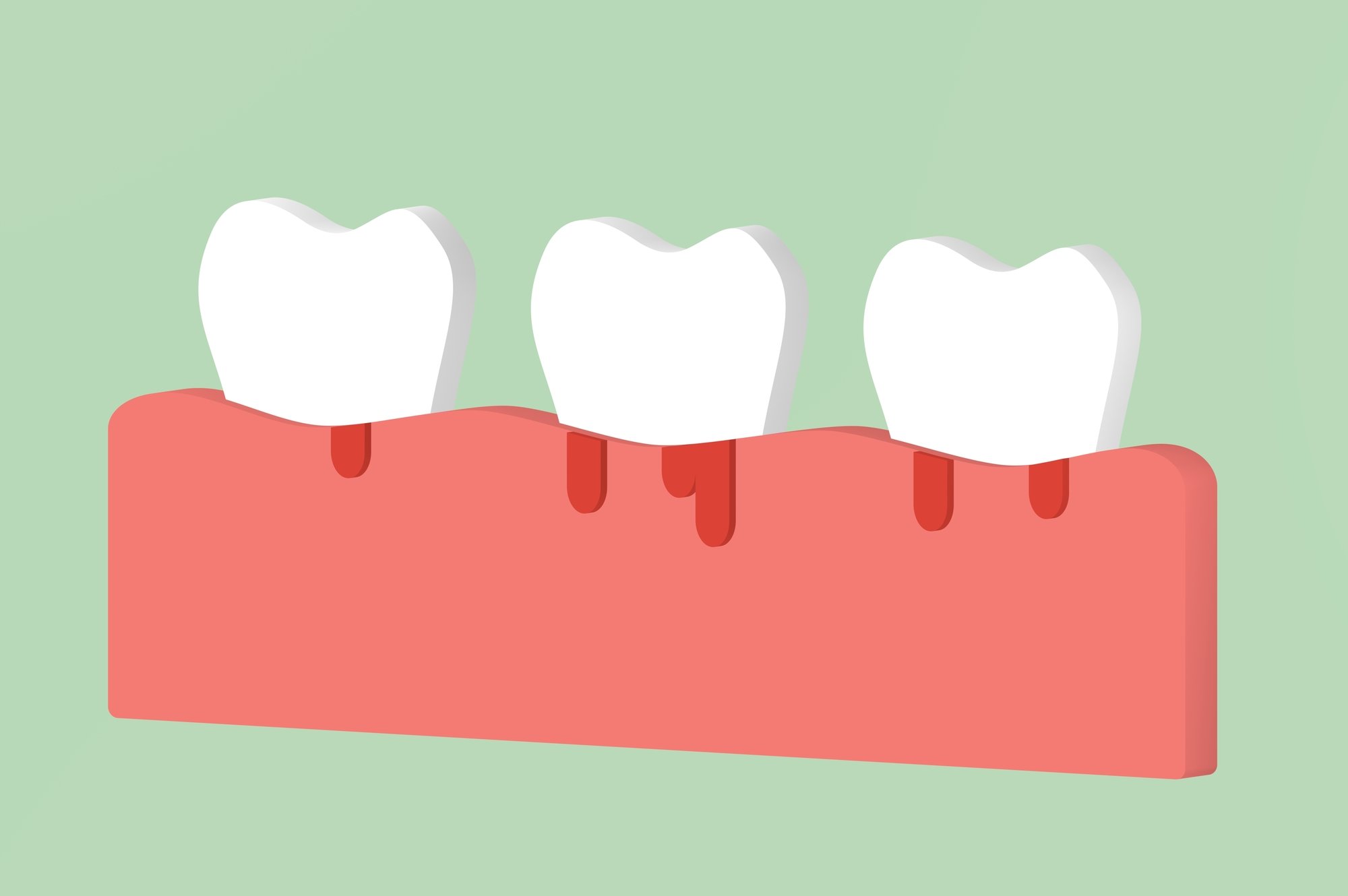
Bleeding, irritated, swollen, and receding gums are a few of the most obvious signs of gum disease. Other signs and symptoms include persistent bad breath, loose teeth, changes in bite, and even tooth loss. Gum disease, also known as periodontal disease, progresses very slowly which is a great thing! This means that dentists can usually catch the disease in its earliest (and only treatable) stage before patients experience the worst symptoms.
However, for patients who don’t visit the dentist regularly, periodontal disease can cause tremendous damage to their oral cavity as well as their bodies. Additionally, periodontal disease can be triggered or worsened by systemic health issues.
How Gum Disease Affects Overall Health
Most often, people develop gum disease because of poor oral hygiene and/or eating habits. What begins as an infection in the gingiva, turns into an inflammatory reaction throughout the body when it gets into the bloodstream.
The bacteria from gum disease infiltrate the bloodstream and can cause the following overall health issues:
Heart disease
After evaluating several research studies, authors from the Journal of Indian Society of Periodontology have found a significant link between periodontal disease and cardiovascular disease. Those studies proved that gum disease creates at least a 20 percent increase in the risk of heart disease.
Though this number is seemingly small, any percentage can lead to dire consequences. Therefore, periodontal care is an essential part of avoiding heart issues.
Diabetes
According to the American Dental Association, people who have periodontal disease may develop higher blood sugar which leads to type 2 diabetes. When the microbes from the disease leak into the bloodstream, the body has a natural reaction, which sometimes means raising blood sugar levels.
Alzheimer’s disease
Researchers haven’t quite figured out the connection between gum disease and Alzheimer’s disease and some even disagree that they are related. However, others believe that an over-production of beta-amyloid as a response to gum disease germs could be what causes Alzheimer’s disease.
Overall Health Issues That Cause Periodontal Disease
For some people, gum disease is caused by issues and changes in the body. While many studies of how certain health issues lead to gum disease are ambiguous, the connection certainly seems clear.
Hormonal changes in women that occur during puberty, pregnancy, menstruation, and menopause often lead to periodontal disease.
The story is a little different for men in that gum disease is more likely to affect other parts of their reproductive health.
Just as periodontal disease can lead to type 2 diabetes, the reverse is also true. Since diabetes leads to blood vessel changes that reduce the flow of nutrients to the rest of the body and removal of waste from the body the gums and bone tissue may weaken.
Gum Disease Prevention
The saying “prevention is the best policy” certainly applies to gum disease. Besides practicing good oral hygiene, such as brushing and flossing, at home, patients should visit the dentist at least every six months. During these appointments, dentists look for signs of periodontal disease and can even eliminate the disease with a dental clean if it’s early enough.
In addition to these practices, patients should eat healthy, exercise, eliminate stressors, and visit their general physicians regularly since we know overall health issues lead to gum disease.
Ready to get your oral (and overall) health back on track? Contact our Woolgoolga dental practice today at (02) 6654-0650 to schedule an initial consultation.


